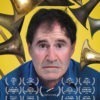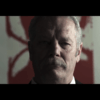
Festival of Films from Iran
Written by Paula Noyes | Posted by: Anonymous
Boston’s Museum of Fine Arts offers a rare opportunity to explore this genre with the presentation of 12 recent films created by both new and seasoned directors in this year’s Festival of Films from Iran. Organized with the assistance of independent consultant Alissa Simon and Barbara Sharres from the Gene Siskel Film Center, this is the festival’s seventh consecutive run. What distinguishes this year’s festival is the presentation of the First Annual ILEX Foundation Award for Excellence in Iranian Cinema to the Makhbalmaf Film House: a film collaborative in Tehran made up of Makhbalbaf family members, whose films appear prominently in this year’s series.
MFA Film Curator Bo Smith has described Mohsen Makhmalbaf, another of Iran’s formidable filmmakers, as a director who "creates films that express a philosophical awareness, a poetic search for the meaning of life." Makhmalbaf’s contribution to this year’s festival "Testing Democracy" (1999) is testimony to Smith’s assertion. And while this film may not show quite as much care as some of his previous films such as "Gabbeh" (1997), its portrayal of Iran’s recent elections offers a fresh and timely meditation on the cultural meaning of electoral politics.
"The Blackboard" (1999) is daughter Samira Makhbalbaf’s second film. Following closely upon the completion of her first film, "The Apple" (1997), — a film that won numerous awards and was shown at over 70 film festivals — "The Blackboard" was a co-winner of the Jury Prize and the then 20-year-old’s second film to be screened at Cannes. The MFA presents one of North America’s first screenings of the film on December 1st and will precede it with younger sister Hana Makhmalbaf’s 26-minute video, "The Day My Aunt was Ill (1997).
Set along the Iran-Iraq border in the mountainous area of Kurdistan, "The Blackboard" follows two teachers in search of students. With blackboards strapped to their backs, the teachers encounter groups of young children, their own backs strapped with contraband, and Kurdish refugees, all headed toward the border. Whereas the blackboards initially raise questions about the value of literacy in this war-torn region, gradually, the blackboards shift into more immediate economies: a tool for exploring love in an arranged marriage; a splint for an injured child; a stretcher for an ill, elderly man; a dowry for a wedding.
The film’s meditative pace, as the characters laboriously make their way through narrow, mountain passes, enables the kind of thoughtful introspection reminiscent of other Makhmalbaf films. One can [has no choice but to] spend time lingering on an image, piecing the strands of the story together, listening to the mesmerizing, repetitive beat of rock underfoot and voices speaking in Farsi.
Two additional films still to be screened in December, "The Day I Became a Woman" (1999) and "Daughters of the Sun" (2000) are stories about women of various ages confronting the challenges of living in modern-day Iran. "The Day I Became a Woman" by another Makhmalbaf family member, Marzieh Meshkini, presents three stories: a nine-year-old girl living out her last minutes on the cusp of childhood; a young woman who rides against the traditions of her tribe; and an elderly woman who ties rags on her fingers to remind her of her life’s longings. "Daughters of the Sun" by Mariam Shahriar follows a woman living in rural Iran who makes difficult sacrifices to become a carpet dealer’s apprentice in an effort to support her family.
The cinematography, the use of color, and the elliptical storytelling are all facets of these films that create visual poetry. Combine this with a persistent attention to the struggles of lived experience, and you have filmmaking that contends gracefully with the complexities and contradictions of both art and life.
The festival runs from November 10 through December 16, which means that there still may be time to see a few of the remaining screenings. Check the MFA calendar or visit http://mfa.org for times.











